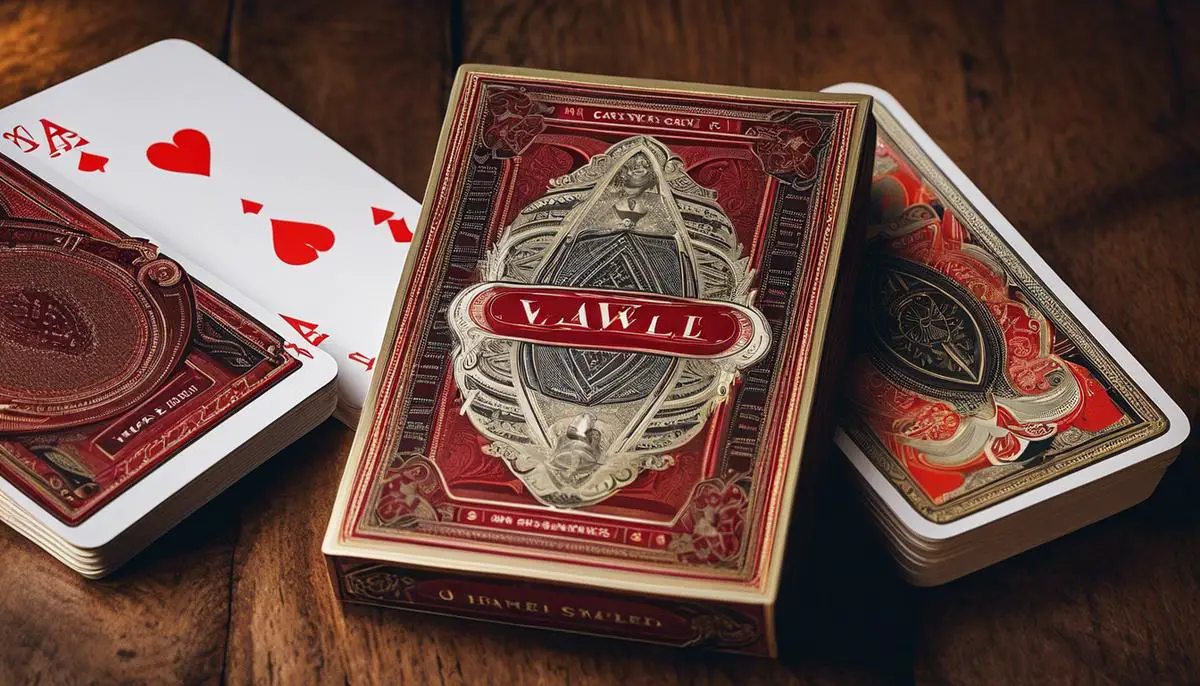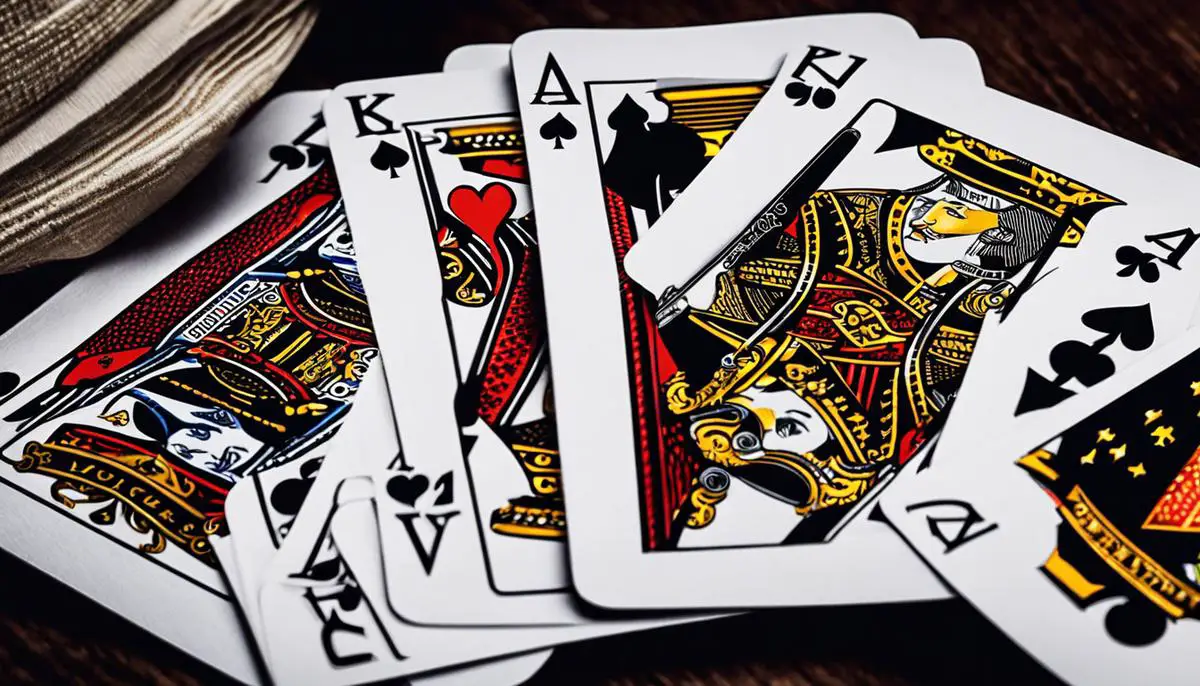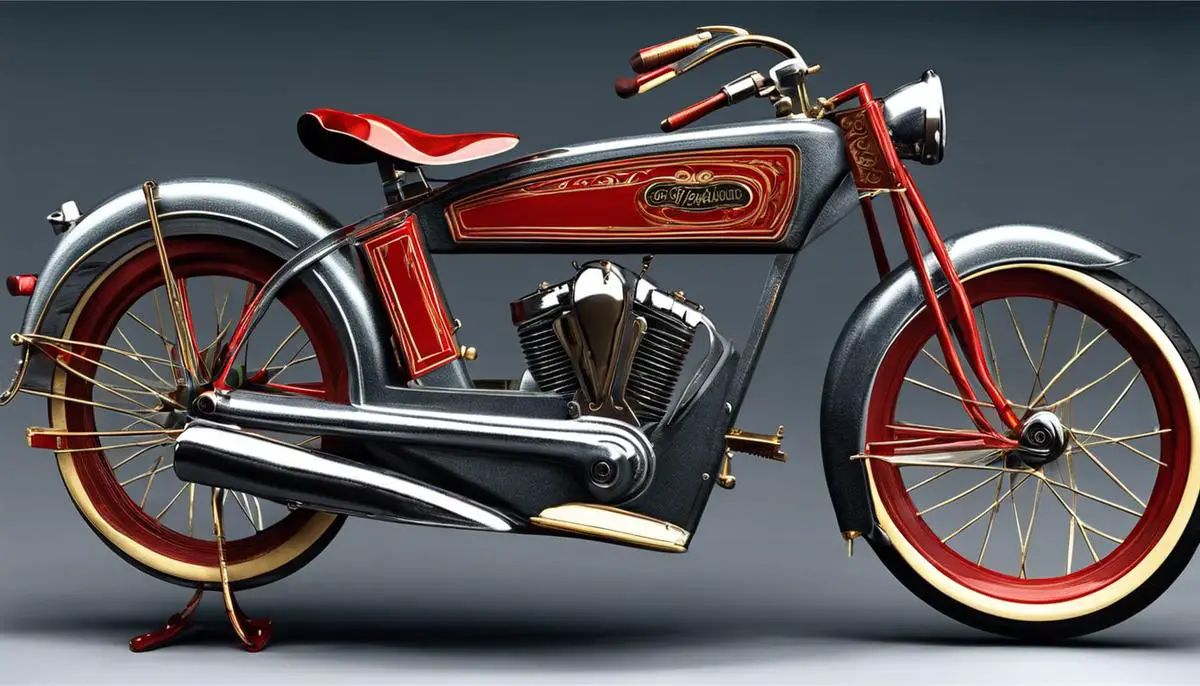Delving into the intricate world of card games, specifically those designed for two players, reveals an engaging blend of strategy, entertainment, and skill-building. At the core of this recreational activity lie Bicycle cards, tools that have transformed numerous living room tables into riveting battlegrounds of intellect and probability. This masterfully crafted deck of cards is appreciated for its blend of functionality and aesthetics, intricately woven into its iconic design. From intimate household games of Poker and Gin Rummy to competitive Cribbage matches, Bicycle cards have successfully cultivated a rich culture of two-player card games. More than just a pastime, engaging in these strategic games can also contribute significantly to improving mental fitness.
Understanding Bicycle Cards
In the world of card games, a deck of cards is like a canvas; it all lies in how the player flicks, shuffles, and deals. But did we ever give a thought about what makes the canvas so intriguing? Well, it’s the ‘Bicycle deck of cards’, a staple in any experienced card player’s collection. This article is for those curious minds who want to learn how Bicycle cards, reputed for their quality and durability, bring a unique twist to two-player games.
The first thing grabbing the attention is its packaging. The tuck case has an iconic aesthetic, complete with a custom seal, giving a vintage feel. But what’s interesting is it’s just the tip of the luxury iceberg.
Unwrapping the package, what lies within are 52 pieces of perfect symmetry, yet uniquely illustrated. The Bicycle cards’ outstanding feature is its handcrafted design, imprinted with vibrant colors that make a spectacle on any table. This spectacle comprises uniquely designed court cards and customized pips. These intricate works of art enhance the overall game-playing experience, especially in two-player games.
On to the technical side, each Bicycle card is made up of three layers of paper: a black middle layer and two outer layers. This three-ply construction, coupled with an air-cushion finish imparted through an embossing process, gives the cards a unique, tactile feel. The cards are smooth and sturdy without compromising on flexibility.
In a two-player game where quick shuffling and rapid dealing are prevalent, such a tactile trait matters. The cards’ slick nature ensures ease in handling and shuffling, making rapid dealing a piece of cake. For games like Speed or Crazy Eights, where rapid movements are crucial, these traits make Bicycle cards ideal.
Apart from the design and construction, it’s the rich history that sets Bicycle cards apart. Originating in 1885, they lend an old-time charm and authenticity to modern card games. When engaging in a two-player game, this historical essence adds a unique character to one-on-one interactions.
Moreover, Bicycle cards come with two Joker cards and two information cards. These information cards can be swapped in or out depending on the game rules, increasing the games’ variety and flexibility. For two-player games, this feature becomes an intriguing factor, offering endless potential for strategic twists and turns.
Then, there’s the aspect of card size. The standard Bicycle cards come in a poker size (2.5″ x 3.5″), which fits comfortably in players’ hands. For intense two-player games where control over the cards spells the difference between winning and losing, the perfect size of these cards makes all the difference.
In a nutshell, the blend of art, design, functionality, heritage and flexibility in Bicycle cards makes them stand out. These qualities, tailored toward easy handling and versatility, make Bicycle cards perfectly suited for an extensive range of two-player card games. Therefore, the next time you sit down for a round of Poker, or any other two-player card game, pay a little more attention to these amazing cards. When you do, you’ll find their charm is indeed tough to ignore.

Popular Two-Player Bicycle Card Games
Immersing in the Thrill of Engaging Two-Player Bicycle Card Games
Having a hearty understanding of the significance, vibrancy, and functionality of the revered Bicycle card deck, it’s high time to delve into the world of enthralling games you can play with just a pair. As we delve into some of the most enjoyable two-player games, it’s crucial to remember that the right deck can make all the difference, making every game a unique experience.
Among the top-notch choices, the game of ‘Cribbage’ holds a special place. This classic Bicycle card game, with its unique scoring board, combines elements of strategy with the distinct element of chance. Throughout the game, players select cards to create optimal crib hands, making intriguing decisions to maximize potential points and undercut opponents. The intricacy and deep-rooted strategy involved in this game make it a perennial favorite among two-player card enthusiasts.
Moving on, ‘Rummy’ stands sturdy on the list of impressive two-player Bicycle card games. In Rummy, the focus is not just on creating sets but also on unloading your hand as fast as possible, bringing in an exhilarating rush of strategy and speed. The dexterity and wit required to outplay your opponent in Rummy make it a player’s delight. With Bicycle cards in hand, each round of Rummy becomes a thrilling showdown of wit.
Another captivating card game to explore is ‘Piquet’. An age-old game, Piquet is a fun and challenging game of exchanges, tricks, and a grand slew of tactics. With its unique scoring system and multiple rounds of play, it’s sure to keep both players engaged and on their toes throughout the session.
Last but certainly not least, we have ‘Canasta’. With its origin in Uruguay, Canasta involves collecting sets, or ‘canastas’, of cards to accumulate points. It requires careful planning and shrewd strategy to outscore your opponent, introducing an extra layer of intrigue to this card game.
Each of these games listed encompasses an array of thrilling play styles, techniques, and strategies. They illustrate the fascinating diversity of the thought processes you can engage in using just a set of Bicycle cards. Whether it’s the complex juggling of numbers in Cribbage, the rush of Rummy, the distinctive exchange dynamic in Piquet, or the strategic quests in Canasta – the possibilities are both extensive and exhilarating. With your Bicycle deck in hand, you’re all set to delve into this world of intriguing cardmanship. So, are you ready for a good duel?

Bicycle Card Game Strategies
– Advanced Two-Player Bicycle Card Strategies
What makes a good two-player card game even more exciting? If you guessed strategy, you hit the nail on the head! Having a wide array of clever tactics makes the competition that much more invigorating and satisfying when your plan successfully plays out. Here are some expert strategies for well-loved card games that employ Bicycle decks.
Cribbage
Cribbage is a classic two-player game with countless strategies to explore. Many advanced players focus on efficient hand management and remaining cognizant of the ‘danger zone.’ This is the region of spaces on the track where a player becomes susceptible to losing, typically between 61 and 90. Knowing when to proceed cautiously or go on the offensive can change the tide of a game. Skilled players often pace their movement around the ‘danger zone,’ only making bold moves when they fall behind or spot an opportunity to leap ahead.
Rummy
Rummy is a game where the adage, ‘Slow and steady wins the race,’ proves true. Timing is a paramount factor here, with pivotal decisions often boiling down to when to meld, pick up the pile, or play the waiting game. A smart Rummy enthusiast knows that sometimes postponing a meld or choosing not to pick up the pile can lead to a more commanding position in the next round.
Piquet
Piquet can seem as much a mind game as a card one. The key strategy in Piquet is deception. Feign strength when weak, assert weakness when strong, and keep the opponent constantly guessing. Remember, the scoring system rewards large sequences or card sets. A player keen on assorting their hand into runs or sets from the onset often gains an upper hand.
Canasta
Canasta strategies revolve around the art of set collection. Prioritize gathering sets of wild cards or red threes, as they can rack up points quickly! Be wary, though; the game discourages hoarding, and holding onto cards for too long can lead to penalties. Striking a balance between rapid collection and judicious play is the secret sauce to acing Canasta.
Remember, the very essence of strategy is adaptability. What works in one game might fail in another, and unexpected circumstances can always throw a wrench in even the best-laid plans. However, knowing these essential strategies can help you shape your game, respond to challenges, and seize the ever-elusive victory in an intense round of two-player Bicycle cards. Give these tactics a spin – the deck is in your hands!

The Impact of Bicycle Card Games on Mental Fitness
Did you know that, beyond the enjoyableness and challenge, playing two-player Bicycle card games can offer mental fitness benefits too? That’s right, your weekly cribbage or rummy game is not only fun, but it’s good for your brain as well. Often overlooked, the mental exercises involved in these games have potentially significant cognitive benefits.
When playing cribbage, the task of counting and keeping track of points is quite a mental workout. It requires memory and mathematical skills that help keep your brain sharp, exercising your mental arithmetic. It’s a strenuous workout for your memory muscle, as you need to remember the cards played and calculate your scores simultaneously.
Rummy games, on the other hand, involve constant strategic decision-making. You must evaluate each card you draw and decide if it will help to create the sets and runs you need to minimize your points. Likewise, it tests your instincts, to predict your opponent’s cards based on their actions. This active decision-making process aids in sharpening your decision-making skills – a valuable attribute in everyday life situations.
Piquet stimulates your brain differently. You must remember the cards that have been played and predict those your opponent has left. It exercises your ability to strategize and plan, enhancing both memory and analytical skills. This high-stakes game provides an excellent opportunity for practicing problem-solving tactics under pressure.
Furthermore, playing Canasta can help improve your mental organizational skills. It’s a game berthed on the rule of order, where you strive to collect and showcase sets of cards while keeping your opponent in check. Balancing these multi-dimensional aspects efficiently says a lot about your mental prowess and ability to handle several tasks at once.
What’s more, shuffling and dealing can have other profound benefits too. These simple actions can help improve motor skills and enhance hand-eye coordination. Beyond this, it also gives way to much-needed social interaction, which is deemed necessary to boost mental well-being.
But wait, we are not done yet. The very nature of these card games – win some, lose some – imparts important life lessons. They remind us of the importance of staying humble in victory, resilient in defeat, and continuously learning. This not only cultivates sportsmanship but also flexibility in adjusting to life’s ups and downs.
So, it’s not all about the game, cards, or even the competition alone. Playing Bicycle card games for two bestow rich experiences that can stretch, challenge, and ultimately improve your mental fitness. Now shuffle up, deal, and enjoy the game!

The world of Bicycle card games offers a vast range of experiences, from strategic duels meant to test your wits and skills, to leisurely games designed for casual enjoyment. These games are more than just a means of entertainment; they serve as a tool for cognitive development and stress relief. So whether you’re a hobbyist, looking to learn a new game, or an experienced player exploring various strategies, diving into the realm of two-player Bicycle card games is sure to be a rewarding journey. This exploration paints a vivid picture of the intricate weave composed of sophisticated strategies, fun-filled games, mental fitness benefits, and the undeniable charm of Bicycle cards. As we navigate through life, sparing time for such immersive activities not only brings us joy but inadvertently develops our mental agility and resilience.
